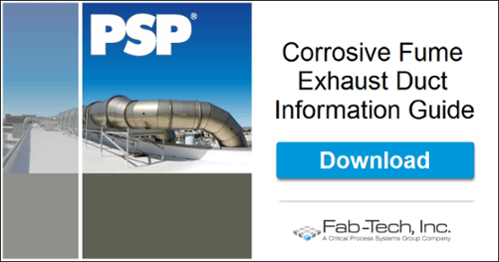Not All Class 1 Duct is Created Equal
Building codes and regulations stress lower flame spread and low smoke generation for many materials. The Steiner Tunnel Test (ASTM E-84) is frequently referenced as a method to assess these burn characteristics and is a mandatory test for many commercial building materials.
/class%201%20duct%20fire%20safety.png?width=600&name=class%201%20duct%20fire%20safety.png)
While such standards and mandatory tests are indeed important, it is also critically important to understand their parameters and tolerances.
Flame Spread and Smoke Generation
By definition, ASTM's fire and flammability standards involve "the testing and evaluation of the ignition, burning, or combustion characteristics of certain materials. Most of these standards are inclined towards the testing of the flammability of interior and exterior building parts, as well as common household and commercial furniture. These fire and flammability standards are instrumental in the establishment of building codes, insurance requirements, and other fire regulations that govern the use of building materials, as well as in defining the appropriate criteria for the storage, handling, and transport of highly flammable substances." - https://www.astm.org/Standards/fire-and-flammability-standards.html
ASTM test values are obtained from burning test material where the given values represent a comparison with 1/4" inorganic reinforced cement board expressed as zero (0) and red oak expressed as one hundred (100).
To be identified as an official Class 1 duct, the duct and connector materials must have a flame spread rating of no greater than 25 with no evidence of continued progressive combustion, and a smoke developed rating of no more than 50.
But here's where it gets tricky!
/FRP%20duct%20fire.png?width=248&name=FRP%20duct%20fire.png) A flame spread of "20" will still allow flame propagation some distance from the flame source. This means that vent duct rated at the weaker end of the Class 1 spectrum can, and does, indeed burn!
A flame spread of "20" will still allow flame propagation some distance from the flame source. This means that vent duct rated at the weaker end of the Class 1 spectrum can, and does, indeed burn!
"CLASS 1" FRP Duct
Consider this for a moment. In certain applications, to safely use FRP duct (with a smoke generation rating over 50), the installation of specialized and expensive sprinkler systems is required inside the ductwork itself.
In addition to costly internal sprinklers, FRP duct also requires flame retardant vinyl ester resin coatings to reach Class 1 status. These resin coatings are dependent on brominated vinyl ester, which generates high levels of smoke and carbon dioxide when exposed to flame.
When measured by ASTM E-84 tests, FRP duct fires generate large volumes of thick black smoke several hundred times the value of fluoropolymer coated stainless steel.
From a risk assessment perspective, particularly in cleanroom settings, the additional cost for smoke damage can be up to five times greater than the cost of fire damage alone.
Given the added fire-suppression requirements and high smoke generation levels of FRP duct, one must then pause to consider whether they can afford the risks and costs of this level of "Class 1 duct."
Class 1 PSP® Fume Exhaust Duct
Installations using PSP® fume exhaust duct go well beyond what is required to be deemed Class 1 duct. With a flame spread of "0", it has the equivalent rating of reinforced cement board. This not only greatly reduces the possibility of fire spreading via the ductwork, but also contributes to a reduction of annual fire and business interruption insurance costs.
PSP® also carries a smoke generation index of less than "20" as certified in ASTM E-84 tests. This dramatically reduces the risks and costs associated with smoke damage.
/Class%201%20duct%20PermaShield%20Pipe.png?width=708&height=345&name=Class%201%20duct%20PermaShield%20Pipe.png)
Beyond ASTM E-84, PermaShield fluorpolymer coated stainless steel also complies with NFPA 820 established by the Uniform Building Code which is accepted by federal, state and local authorities.*
Finally, PSP® is Factory Mutual (FM 4922) approved with various joining systems for unlimited vertical height and for up to 16 mils; though our recommendation is that 10 mils is more than adequate for any service conditions ever encountered.
In Summary
Putting it all together, PSP® is a true Class 1 duct that will greatly contribute to the overall safety of your facility as well as the safety of the men and women responsible for daily operations. With its superior corrosion resistance, structural stability, and fire and smoke characteristics, PSP® won't burn, collapse, or melt, and is unsurpassed in the prevention of fugitive odor, vapor contamination, fluid leakage and catastrophic loss of life and property in the event of a fire.
If you would like more information about PSP® fume exhaust duct, please feel free to download our general information guide below:
OR
Read More About PermaShield Fluoropolymer Coated Fume Exhaust Duct Here
*NFPA 820 is the Standard for Fire Protection in Wastewater Treatment and Collection Facilities.


